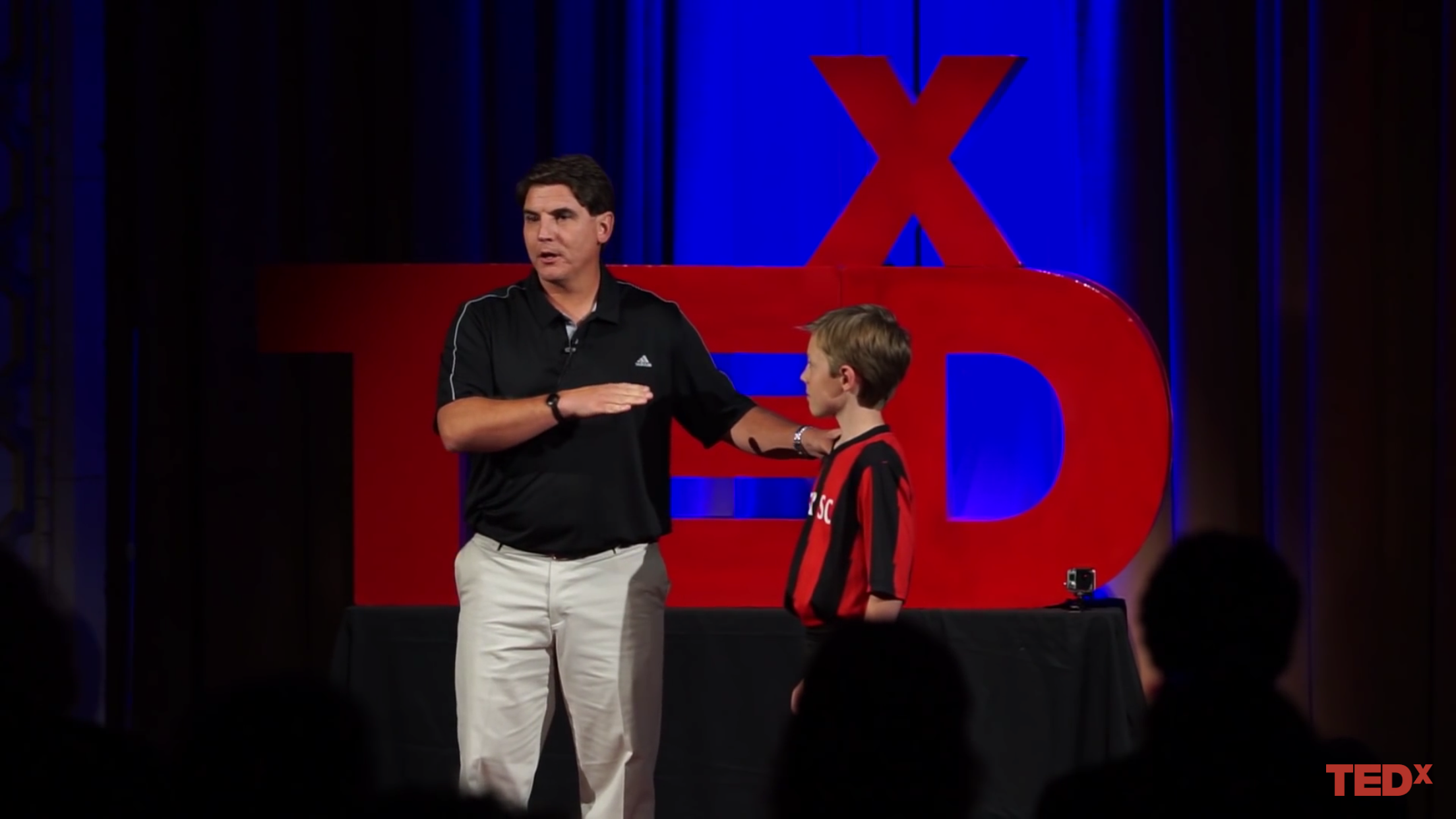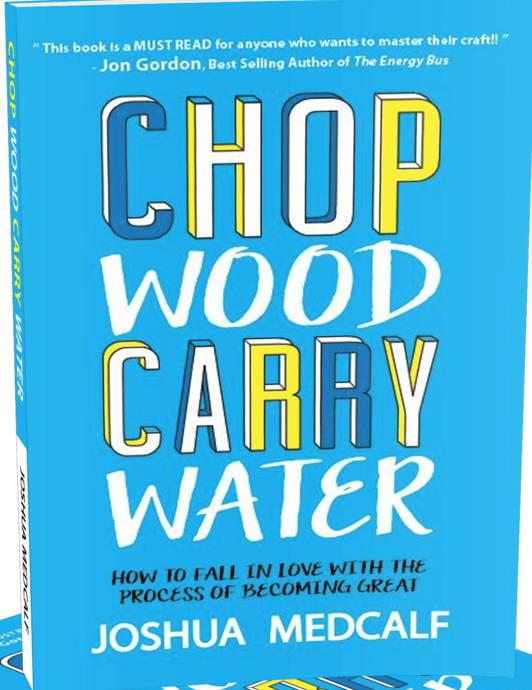I remember the conversation like it was yesterday.
I was a sophomore in high school, and I was mad. I was offended. I was aggrieved… I had been benched.
When I got home from school, I wanted someone to tell me how I was right, and the coach was wrong. I wanted someone to tell me that I was great, and my teammates who had replaced me were not. I wanted someone to validate my feelings..
Luckily for me, I had chosen to have my “woe is me” talk with my dad. He was an old school guy, born and raised in the Bronx. He had been forced to retire from his dream job — the NY City Fire Department — after destroying his back during a fire. Life had been good to him, and tough to him, and he certainly wasn’t intending to make it easy on me.
His goal wasn’t to make me feel better that day. His goal was to make me BE better.
“John,” he said, “regardless of whether you think your coach is right or wrong, regardless of whether you think you are better or worse than your teammates, that is really all beside the point.”
I sat quietly. You do not interrupt my dad.
“The question you have to ask yourself is ‘have I done everything in my control to earn a starting spot?’”
I thought about it. “Yes, I’m better than those guys,” I protested.
“That is not what I am talking about,” he said. “That’s one man’s opinion. Here are some things that are not. Do you show up early and do extra work? Do you stay after and work on your game, or even run laps and improve your fitness? Do you pick up the cones when training is done? Have you gotten up before school yet this season to do extra work on the track, or against the kick back wall?”
“No,” I answered, not liking where this was heading.
“Well, until you have done anything and everything you can do to show your coach and teammates beyond any doubt who deserves to be out there, you have nothing to complain about. I suggest you get back to work and leave your coach no choice but to put you in, because right now he clearly has a choice.”
Conversation: TERMINATED.
This was a defining moment for me as an athlete. Our relationship was not always rosy when it came to sports, There were certainly other things he said and did that did not affect me in a positive manner. For whatever reason, though, this lesson had the desired effect. From that day forward, as a high school, collegiate and professional player, I always believed that I had nothing to say until my actions spoke first. It was up to me to leave no doubt. In the words of inspirational former Cornell Lacrosse player George Boiardi, as told by Jon Gordon in his great book The Hard Hat: 21 Ways to be a Great Teammate, “Well done is better than well said.”
I get a lot of emails and inquiries about kids ‘playing out of position,’ about being ‘forced’ to play for a tough coach and struggling for playing time. Since the recent changes in US Soccer birth years, I have heard a ton about kids having difficulties adapting to new teammates and age groups. And I get it.
As a parent, I worry about my kids and how they will react to adversity. I get anxious when they encounter difficulty, when they are pushed extremely hard, and when they want to give up. I get frustrated when they struggle. I get scared that my December birthday daughter is at a disadvantage now in soccer due to her relative age. I don’t like to see them fail, because deep down, every time they fail it feels like a part of me is failing, and that doesn’t sit very well with me.
Yes, I want to intervene. I want to help them feel better, just like I wanted to feel better.
And then I catch myself. I think what would my dad say?
My parents were great supporters of my sporting journey, and in honor of Father’s Day, I wanted to share a bit of my dad’s wisdom that extended well beyond the soccer field, the wrestling mat, and the baseball diamond.
Here are ten lessons my dad taught me in sports that have carried me through life:
- As Confucius says, “Do not worry that no one knows you; seek to be worth knowing”In other words, until you have done everything in your power to influence a situation, quit whining and start doing.
- Be coachable: Be a great listener, pay attention, and do what the coach tells you, even when you see others doing the opposite and being rewarded for it
- If you are going to do something, do it right: Make a commitment and fulfill it. Do more than is asked, not simply the bare minimum required for participation. You can go fishing, go to that party, and go skiing when your commitment is done, but until then you owe it to your teammates to be all in.
- Be honest: When someone asks your opinion, tell the truth. It is not always easy, and it is not always fun, but one day you will have a reputation as a person who others can go to when they need a hard, honest truth, not just someone who makes you feel better. The former is a true friend, and the other is just a fan. Be a friend.
- Shake hands, look people in the eye, and say “thank you:” This demonstrates respect to coaches, officials and other people who have taken the time and effort to make your game, and your sport, possible.
- Be patient: Being really good at anything is a marathon. Some people may grow before you, and thus be bigger, faster and taller than you, but so what? That will all eventually even out, and then what? Will you be a better player, or someone who gave up because life didn’t hand you all the breaks right away?
- Embrace both failure and success: You want to do your best to win, but what matters more than the scoreboard is how you learned and developed. Don’t ignore mistakes because you won, and don’t dwell on them because you lost. Everyone makes mistakes, so you might as well make them trying to make a play, instead of trying not to make mistakes.
- Don’t slouch and pout: Your body language and your attitude matter. They affect how coaches, teammates and others perceive you, and if you are going to be a leader, no one really cares how you are feeling right now. Suck it up and be positive.
- Don’t hold a grudge: My dad coached high school soccer in various capacities for 17 years, and then was unceremoniously fired one season after a couple of parental complaints. I say unceremoniously because most years he donated his coaching salary to the school scholarship fund to help needy athletes. He bought equipment when the school had no budget. He ran extra training in the off season at no charge to players or families. It broke his heart when he was let go, and yet the next year he once again donated to the school scholarship fund. I asked him why. “They do a lot of good for so many kids,” he said. “It’s not those kids fault, and they should not be the ones who suffer.”
- Be humble: Whether you win or lose, be humble. It’s just a game, and today was your day. Tomorrow might be theirs. Respect the officials, coaches, and your opponents, because chances are you will see them again someday beyond the sports field, and what you do on it will affect how they think of you.
Mark Twain once said “When I was a boy of 14, my father was so ignorant I could hardly stand to have the old man around. But when I got to be 21, I was astonished at how much the old man had learned in seven years.”
My dad is 81 this year, and he sure has learned a lot!
In all seriousness, though, my dad’s health has not been that great recently, and I have come to value and enjoy our conversations and our time together so much more. I wish I paid better attention when I was younger. He has taught me a lot about sports, and about life. I use those ten lessons above everyday in coaching, in running a business, in my marriage, and most importantly in my interaction with my own children. They don’t always like it, and they don’t always want it.
But they do often need it, and hopefully they will thank me someday, just as I am doing today.
Thanks Dad. For everything.













Comments